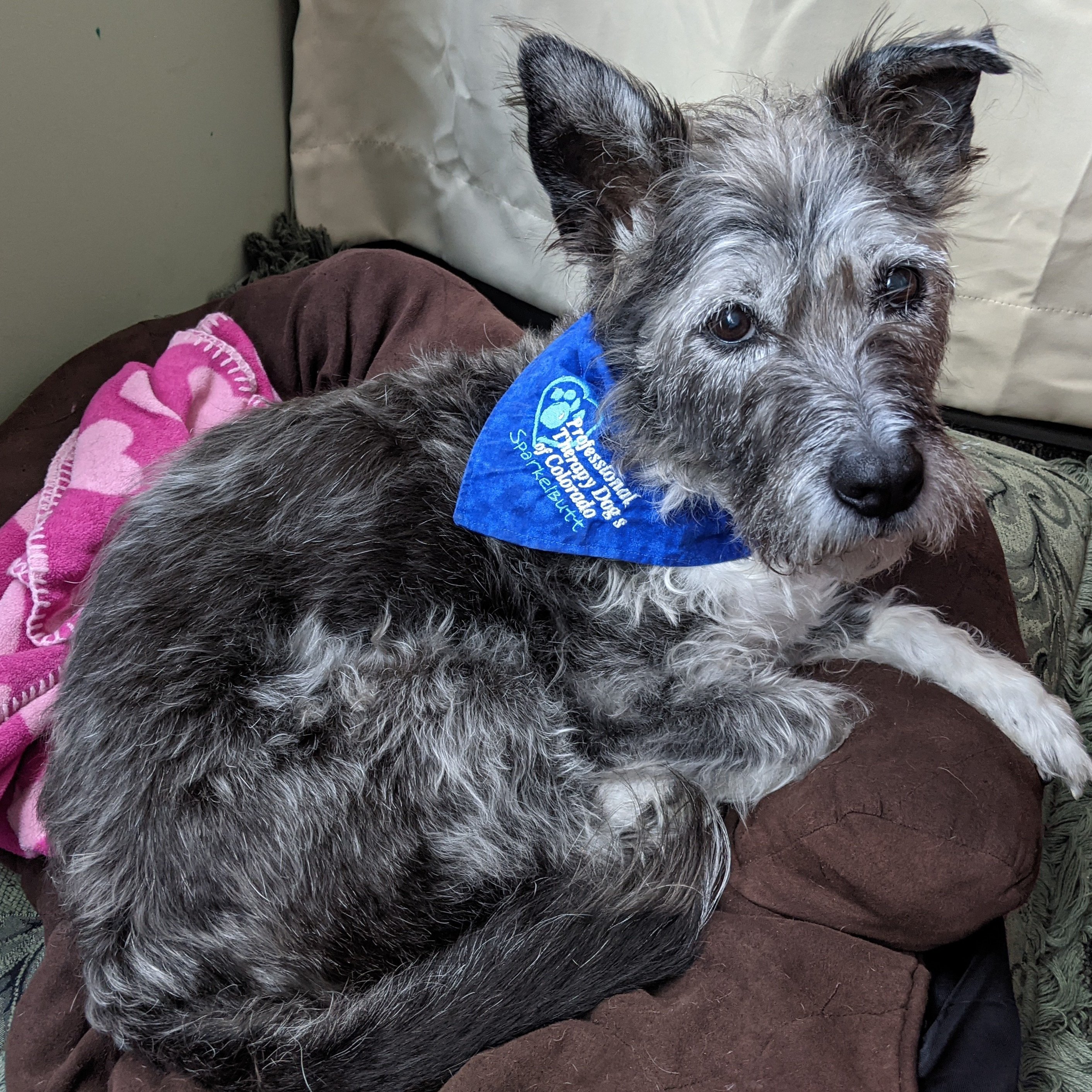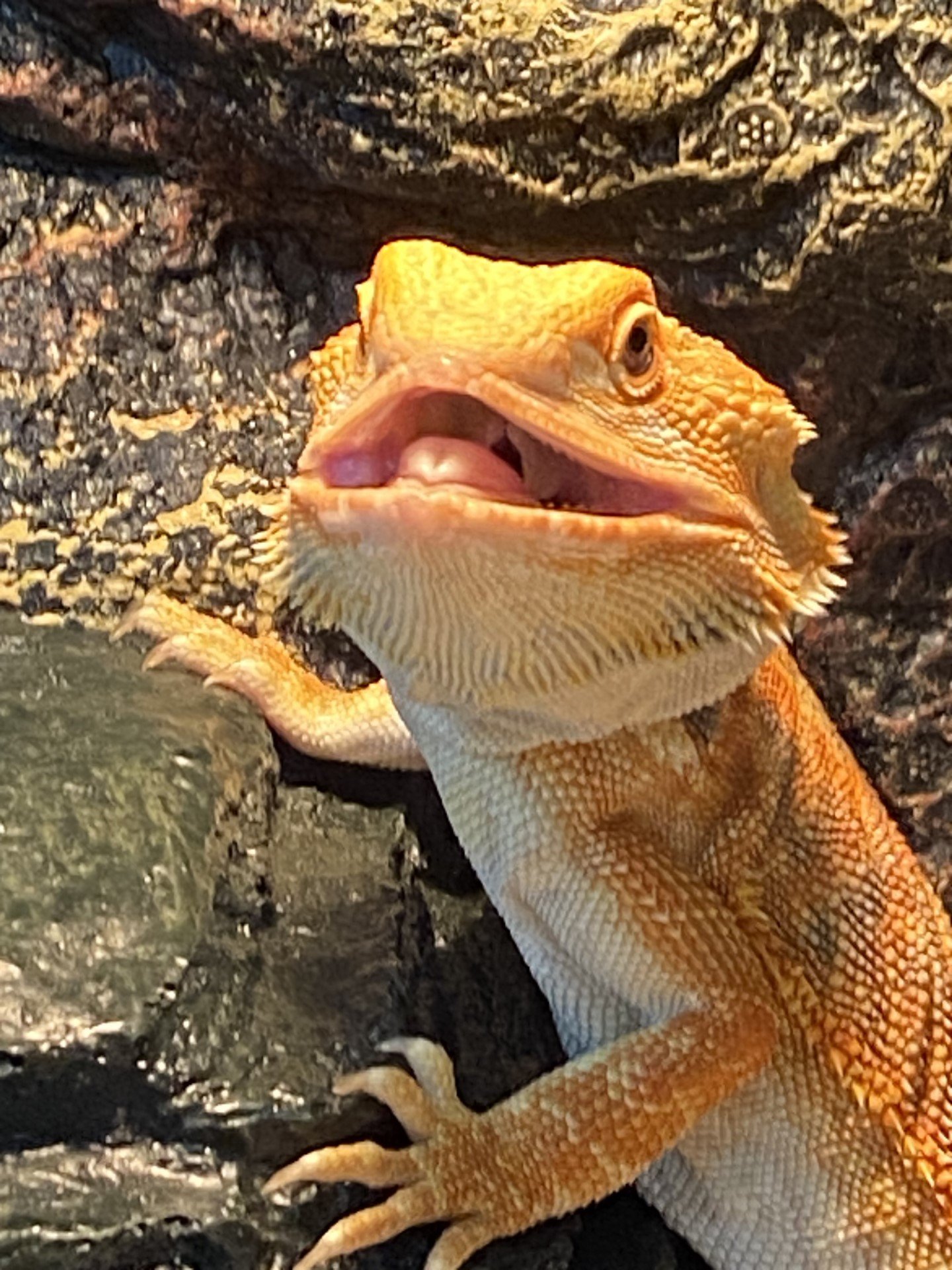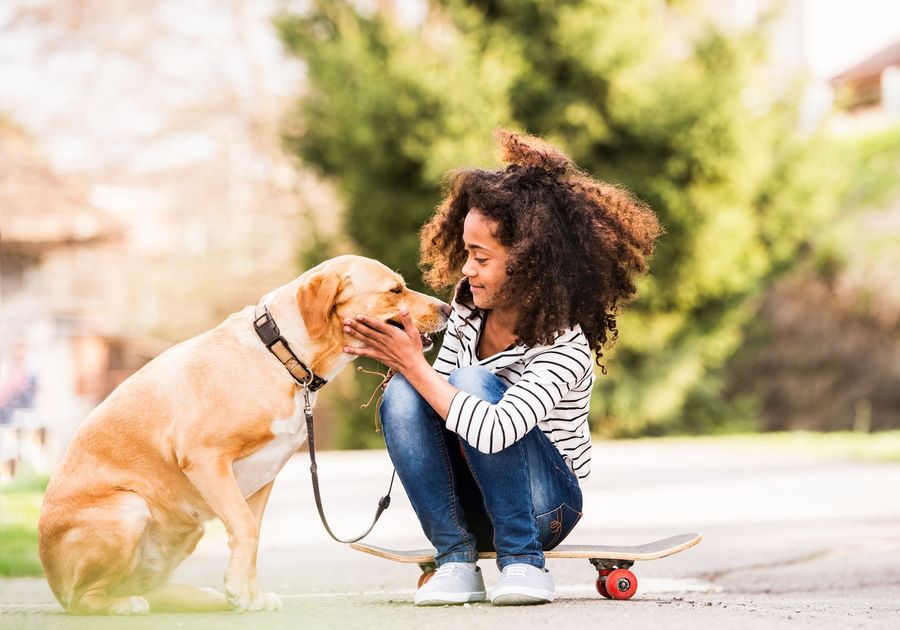According to research from UCLA, petting an animal can release serotonin, prolactin, and oxytocin in the body. Animal Assisted Therapy (AAT), also known as pet therapy, uses dogs and other animals to help alleviate stress and promote relaxation during therapy sessions.
AllHealth Network offers a wide range of mental health services, including Animal Assisted Therapy. AAT sessions are led by a Certified Clinician or Handler who has received formal education and training to incorporate working with animals to enhance therapeutic treatment goals.
Therapy animals may include dogs, cats, small animals, and reptiles. All therapy animals are medically screened by a licensed veterinarian annually and have received the required vaccinations. Therapy animals have received their species-specific certifications, confirming that they are healthy, have a good nature, and are interested in connecting with humans.
AllHealth Network has a handful of clinicians who have trained animals, including dogs and even a bearded dragon. We've asked two of AllHealth Network's clinicians — C Blanck MDiv, MSW, HAEI-SW, SWC (they/them) and Amanda Perkins MA, MFTC, CAAP (she/her) — to tell us about their animals and give us some insight regarding animal-assisted therapy.
Q: What are your dogs' names? How old are they?
C Blanck: My dog's name is Fusion, and he just turned a year last month.
Amanda Perkins: My therapy dog's name is Sparkelbutt! She is a 16-year-old Scottish Terrier Basset Hound mix. I found her as a puppy one rainy night on my doorstep in college.
 |  | |
| Fusion | Sparkelbutt |
Q: How long have you and your dog been working together?
C: We just started working together last month.
Amanda: We worked together as a co-therapy team from July 2020 until February 2023, when she retired from working with clients.
Q: How do people react to the dog at first?
C: Sometimes people are afraid of him; he is a big dog, and that fear is completely okay and understandable. If fear is present, we take slow steps to introduce ourselves, and often, adults (and Fusion) end up getting along and practicing skills together.
For example, I will often have Fusion meet folks in the lobby, hand them a treat, and tell them that Fusion needs to sit before he can engage with them, and then we all walk down to my office. Doing this extra step introduces our session and benefits both Fusion and the person(s) interacting with him.
However, most of the time, people are excited to see him, and he is excited to see them.
Amanda: Like many adults, most children can get very excited around a dog, which is usually demonstrated with smiles, excitement, and a loud squeal of "puppy!"
This is typically followed by asking both the child and the therapy dog to sit before walking through the appropriate greeting of a dog, such as approaching Sparkelbutt slowly, with a hand open and fingers pointed towards the ground in a friendly, non-threatening way to allow for sniffs before petting.
Q: Who can benefit from animal-assisted therapy?
C: Anyone! Especially those with big emotions and those who may be struggling with symptoms of trauma, depression, or anxiety.
Amanda: Most people can benefit from animal-assisted therapy!
Q: What other animals can be therapy animals?
C: Any domesticated and properly trained animal can be a therapy animal with a properly trained handler.
Before adopting and training Fusion, I had a therapy rabbit that I, unfortunately, had to retire a few years ago. He now lives his best-retired life from the comforts of home with lots of treats and hay.
Amanda: A wide variety. Dogs, cats, horses, donkeys, alpacas, goats, ferrets, rabbits, guinea pigs, birds, chickens, etc! My cat, Mr. Blingers, joined telehealth sessions in the past.
Q: How can animal-assisted therapy help?
C: Animals can help provide a sense of comfort in the room during therapy sessions. With that added sense of comfort, folks are often more able to discuss with their therapist what is going on, and their therapist is more able to help them with the full(er) scope of what may be happening in someone's life or the level of mental health symptoms they may be experiencing.
Studies indicate that human-animal interactions can reduce people's stress and comfort and increase their sense of meaning and happiness.
Q: What animals at AllHealth Network provide animal-assisted therapy?
Amanda: Most clinicians work with their dogs. However, we have a clinician on staff with a bearded dragon, Poppy!

To learn more about animal-assisted therapy or find a therapist who has a therapy animal for you or your child, contact AllHealth Network's information line at (303) 730-8858 or visit our website at www.allhealthnetwork.org. Some clinicians also offer telehealth options.
Other services, including art therapy, play therapy, and music therapy, are available in addition to animal-assisted therapy. Explore the many services AllHealth Network offers to children and their families at www.allhealthnetwork.org/services/early-childhood-services.
AllHealth Network is a not-for-profit mental health organization that offers a wide range of mental health and substance use recovery services. It has over 250 clinical providers and more than 30 psychiatrists and nurse practitioners ready to help you and your family.
If you or your child are experiencing a mental health emergency, call (303) 703-3303 or visit the AllHealth Network Walk-In Center at 6509 S. Santa Fe Dr., open 24 hours a day, 7 days a week.
AllHealth Network
116 Inverness Dr. E.
Englewood, CO 80112
(303) 730-8858




